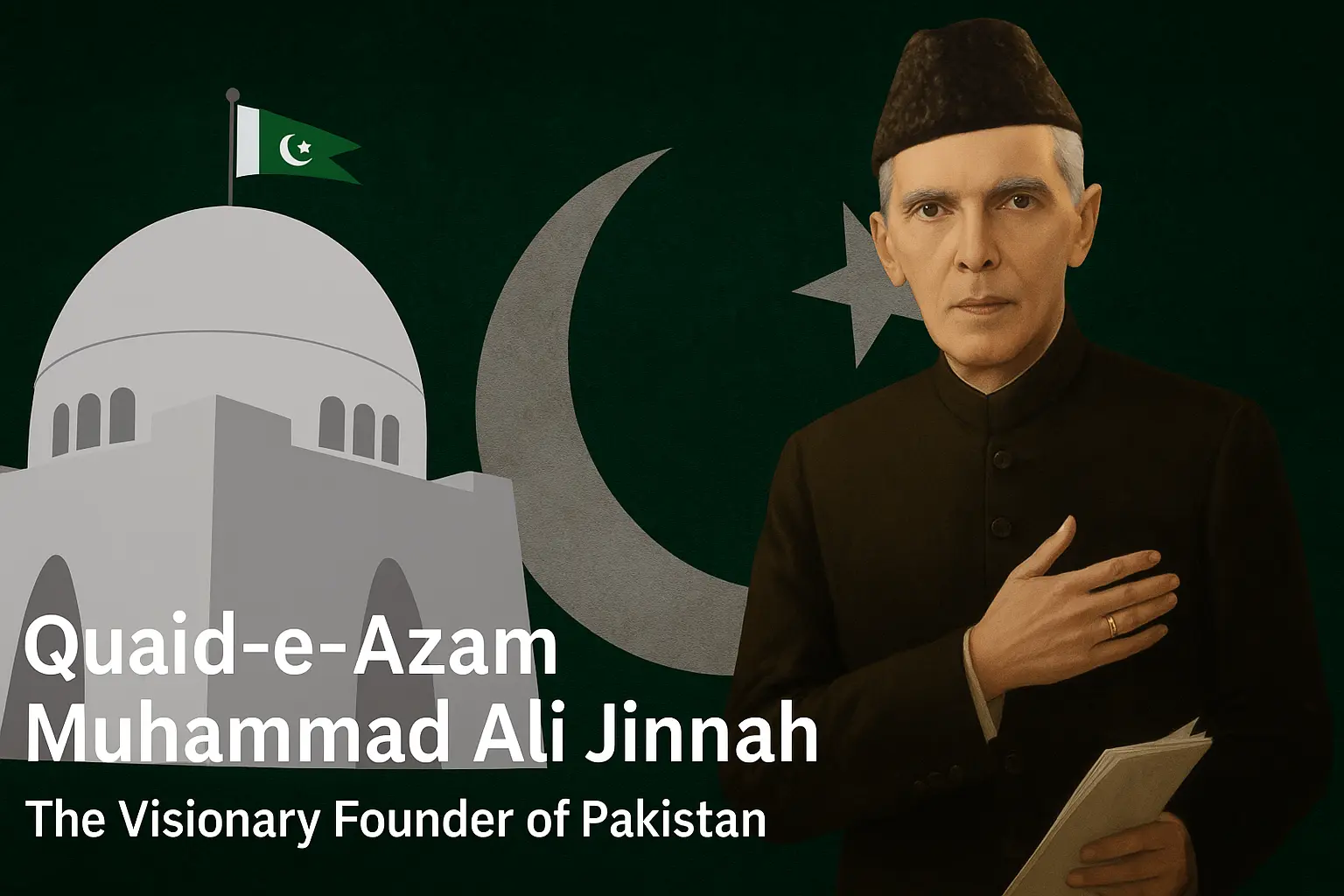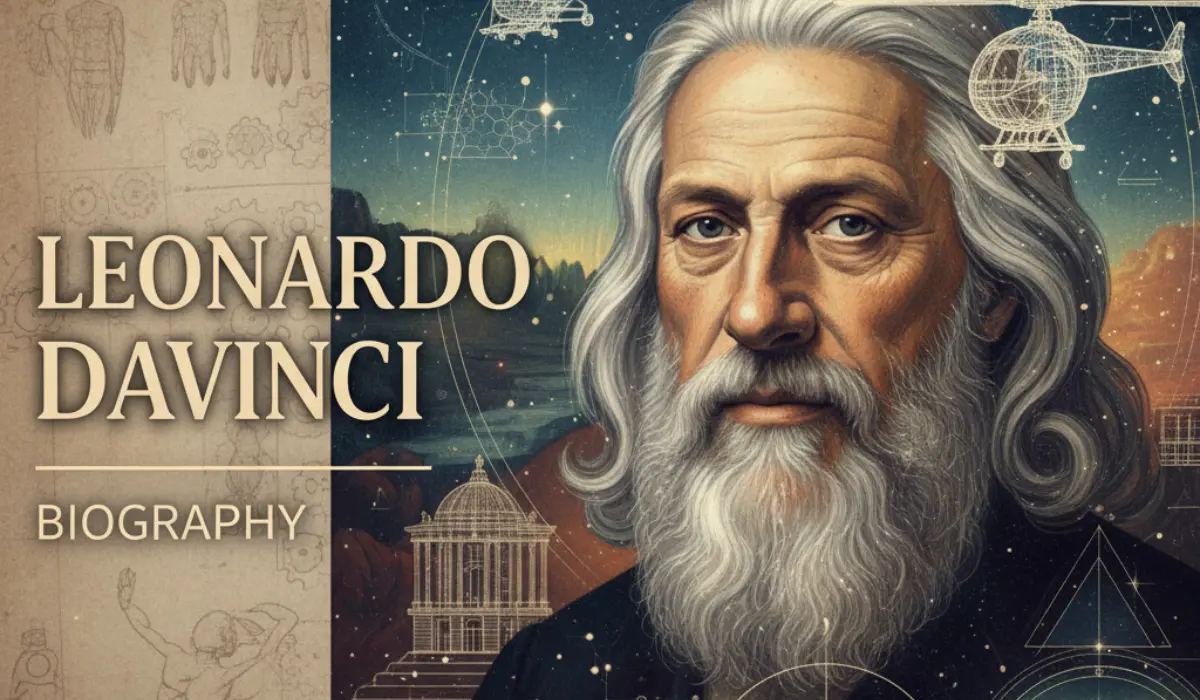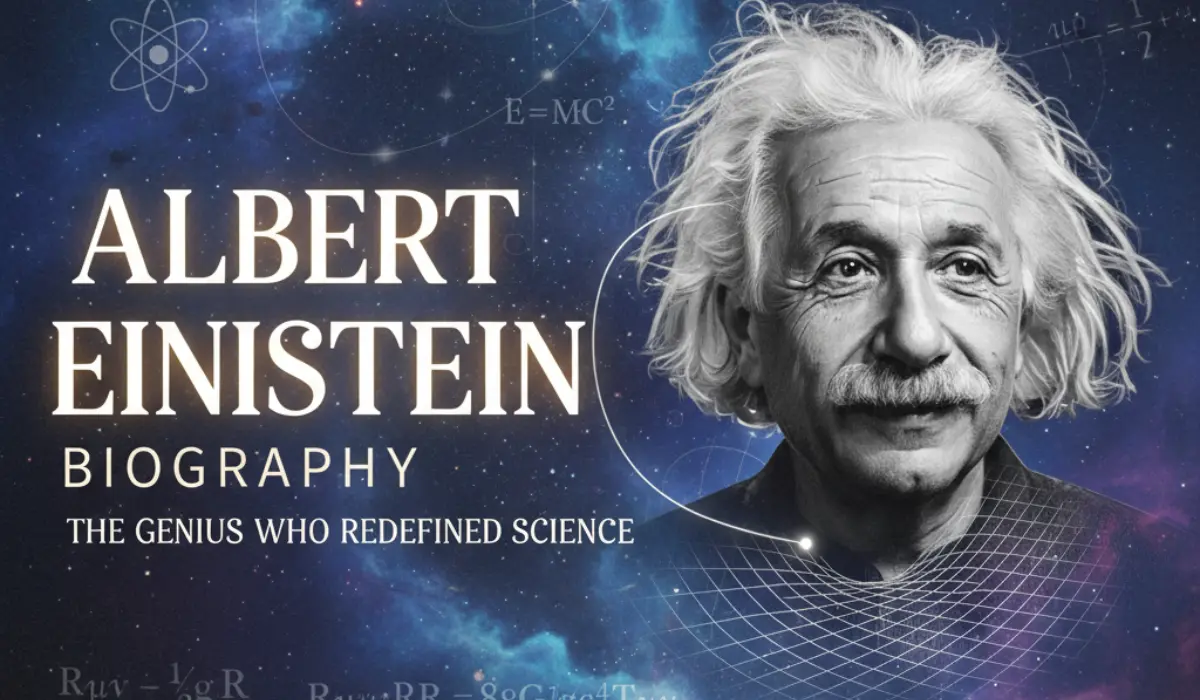
Among the giants of men who had solitary drawn new borders across the world, none had the abiding, unspoken strength of Muhammad Ali Jinnah. He lived as Quaid-e-Azam—The Great Leader—to the millions, a name that says it all about his resolve, his piercing intellect, as well as a moral compass that never flickered once. Jinnah’s existence wasn't a professional life spent in politics; it was the rags-to-rags saga of the man who put the cause of justice, reason, as well as the supremacy of the rule of law, above everything.
Think about his journey: He progressed from being well-respected Indian lawyer in British India to the Father of Pakistan. It is the most beautiful example of how self-controlled, idealistic leadership with the backing of an iron will can completely relove history, even in a world carried away by a surge of populism and ideology.
From Karachi to Lincoln's Inn
Jinnah was born on 25 December 1876 in Karachi. His father, Jinnahbhai Poonja, was a merchant of some standing, and his mother, Mithibai, brought to the home a climate of strong values as well as sweet wisdom. Jinnah was exposed from the start to a world that honored profound cultural traditions as well as the potential of a modem education—a crucial balance that would one day shape his whole political philosophy.
He attended the Sindh Madrassat-ul-Islum and the Mission High School prior to making the courageous decision at sixteen to go to London. There, he trained at the world-renowned legal college of Lincoln’s Inn. This experience in England wasn’t with books; it was a rich exposure to the inner detail of constitutional democracy as well as the practice of parliamentary debate. They made his lifelong belief in due legal development as well as rational debate.
Upon returning to India at long last in 1896, Jinnah set up practice in Bombay (present-day Mumbai). His oratory gifts were exploits of legend, his legal acumen irrefutable, and his finer instincts of justice made him within no time one of the terrorized yet revered barristers of India. He belonged, as one could judge from the accounts of the contemporaries, to a class of his own.
The Transformation of Unity to Nationhood
Jinnah came to his political baptism in the early 1900s with the Indian National Congress. At the beginning, he struggled for united India, deeply trusting that Muslims and Hindus could live equitably in one constitutional framework. However, as the years progressed, Jinnah became deeply uncomfortable. He noticed a growing divergence and some alarming neglect of Muslim political identity developing among Congress leadership.
He entered the All-India Muslim League in 1913, but this wasn't yet a sudden turn towards separation. Throughout the years, he maintained his concentration on moderation, bargaining, and fixing the Constitution. His best moment during this period was playing the crucial role in the 1916 Lucknow Pact, the briefest possible moment of true cooperation between the Congress and the League.
But as the political situation grew rawer and more polarized, most leaders decided to surf the tide of mass agitations and heart-in-the-throat Sindhi rhetoric. Jinnah did not. He held his ground, retaining his unflinching belief in reason, jurisprudence, and proper rhetoric. By the late 1930s, the Indian Muslim looked to him, and to no one else, as his irrefutable leader.
The die had been cast in 1940. Jinnah issued the Lahore Resolution, apparently calling in clear terms for separate homelands within the subcontinent for the Muslims. This was the dream that propelled the making of Pakistan on 14 August 1947. Never once during the gruesome independence struggle did he lose his temper. He spurned flat the option of violence, maintaining that the Constitution provided the path to go about it, even as the political energies endangered a boil over. His storied 11 August 1947 speech to the Constituent Assembly of Pakistan remains the best articulation of his vision: a new state founded on equality, religious freedom, and the governance of the law.
A Guiding Philosophy
Central to Jinnah’s heart was a cry for justice, equality, and constitutionalism. He eloquently maintained that no form of democracy could flourish without a foundation of reverence for law and individual freedom. Religion to Jinnah was a matter of the individual’s private concern, and the state’s superior obligation was to ensure fairness and freedom to each individual citizen, be that citizen’s background or religion what it may.
He didn’t fantasize about Pakistan as some Muslim haven. He dreamed of it as a new, democratic state, based on social cohesion, opportunity, and true equality. His symbolifying motto—"Unity, Faith, Discipline"—beautifully summed up his vision of a systematic, directioned society.
His rhetoric was a lesson in self-control. He played exactly what he said; he never overstated; and always facts, never bombast. He stirred loyalty and mobilization through his integrity and clear-eyed reason, not with flair for the dramatic.
An Enduring Legacy
The life of Muhammad Ali Jinnah was prematurely ended as he died on 11 September 1948, hardly a year after his dream came true. However, his legacy is hardly completed; it continues to define the moral, political, and national psyche of Pakistan. To millions upon millions, he is not just the founder; he is an enduring symbol of bravery, intelligence, and abiding discipline. His leadership revealed to the world that gigantic transformation can be attained with unshakeable moral belief, legal procedures, and intellectual power. Amidst a violent revolution-filled century, Jinnah proved that national revolution could be obtained with long-suffering, determination, and rational argument.
Throughout the world, he is etched in history as the statesman who led one of the most complex liberation struggles of all time, never losing faith in the sanctity of law and justice.
Conclusion
Jinnah’s narrative is characterized by an unusual blend of intellect, integrity, and single-minded determination. He was no fiery revolutionist; he was a political constitutionalist who used reason and principle as his main instruments of transformation. His success in fashioning out a new state is an irrefutable testament to the fact that a strong vision, enabled by intent and discipline, can positively transform the world.
Centuries will go by, yet Jinnah’s values seem more important now than ever, a continuing challenge to the next generations: preserve the truth, demand equality, and never forego the order of the law. Jinnah in the annals of Pakistan remains the founder but the moral compass of the nation.


